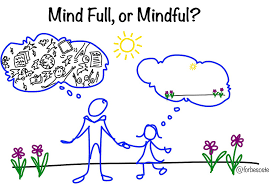
5 Tips for Taming Anxiety

Read on to find out why looking after your body and focusing on that brain – mind – body connection is vital to being the best we can be. Learn how changing your posture can change your mindset, reduce anxiety and help you to become more successful. Read More
Show me what your body looks like when you bend over your laptop or text on your phone. Go on – do it. Now show me what depression looks like. Yes. I’m asking you to move into that hunched over position that resembles someone on their phone. Now sit up and imagine that you’ve just had an interview and got a fabulous new job. Spend a few minutes in this position. Be that successful person.
How does your body feel? Wonderful.
It’s a two way street between our body our brain and our mind so the traffic goes both ways!! The brain responds to data and definitely notices our posture so it probably thinks you’re getting old and decrepit. What kind of message is that to give your brain!!
If you really want to energise your brain and get that feel good glow, stand for five minutes every day in the superhero pose. Come on, we’ve all got time. Start a trend in the local cafe when you’re waiting for your coffee. Hands on your waist; knees slightly bent; shoulders back but soft and not tense; feel as if the vertebrae in your neck are growing so that you stand tall. Think about that fabulous job you’ve just won (even if you haven’t yet). Just standing tall or ‘sitting tall’, allows more oxygen to reach the brain. How good is that?
Let’s do a few squats. Oh no I hear you say, but look at the benefits:
“Engaging lower body muscles sends signals to the brain to produce new neural cells. Some of the very building blocks that allow us to handle stress and adapt to challenge in our lives.”
I’m lazy so I’ve signed up at the gym several times, only to find that I don’t make it more than three times. Doing 100 squats a day pumps up my heart and has really made a difference to my fitness. Commit to doing squats every day – you can do 100 in seven minutes- to improve bone health, encourage the production of new neural cells and strengthen your pelvic muscles. How good is that? You can do 20 squats in no time at all so make a start today.
Changing habits is something we can all do. I challenge you to create a tick sheet and put it on your fridge to show 21 days of activity. Without that constant reminder, your brain goes back to the default pattern. Replace your old habit with a new visual reminder. Choose one of the tips above to put into action. Or even better, do both of them. 21 days is all it takes to create a new habit.
When I was challenged to do 100 squats a day for 30 days, my first response was – Bullshit – you’re kidding me. I’ll never be able to do that. I hate squats! I was persuaded to start small and that worked well. By the end of the second week, I was onto it and even better, my brain was onto it. Can you believe it? I’d just lie down in bed at night and my brain would go ‘DING’ ‘You haven’t done your squats.’ I’d feel compelled to jump out of bed and stand in the bathroom or at the side of the bed, doing one hundred squats as fast as I could, not really caring how they were done. What a sight.
My point is that my brain had formed new neural pathways to get that message to me. WoW. How amazing is that! So get that mind body connection going and change your mindset to reduce anxiety. unexpected-benefits-squats/ Find more articles at elenalennox.com
Elena is a Wellbeing Coach and Resilience Trainer who is passionate about staying well and that means reducing those damaging hormones produced when we’re anxious. Contact Elena – elena@resilientpeople.com.au for a free 20 minute consultation.






